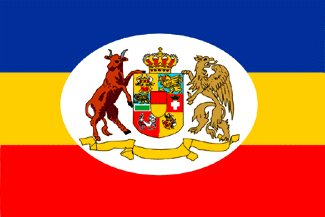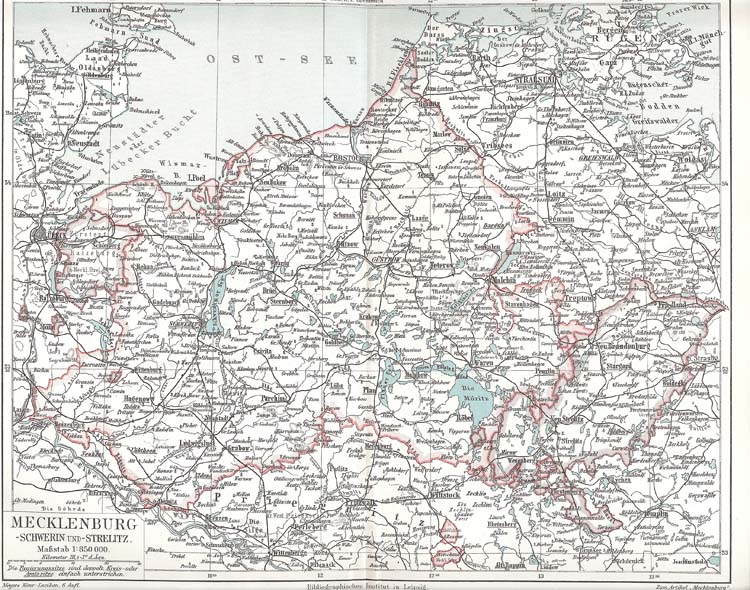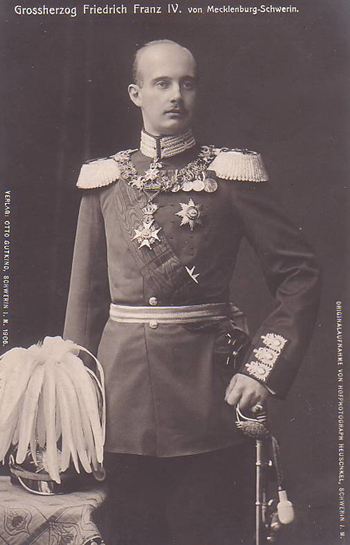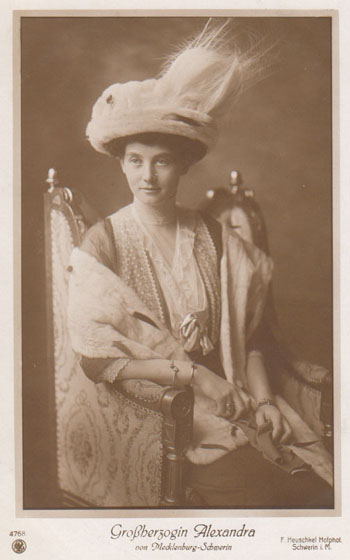Mecklenburg-Schwerin




(1813-1871)
The Grand Duchy of Mecklenburg-Schwerin was a member state of the Germanic Confederation from 1815 to 1866. Mecklenburg-Schwerin sided with Prussia during the 1866 war, and afterward became a member state of the North German Confederation in 1867, and then a member state of the Imperial German Empire in 1871. The grand duchy was a monarchy limited by the representation of two estates. There was no parliament. Mecklenburg was the closest thing to medieval serfdom in Germany. Serfdom was eliminated in Mecklenburg in 1820. However, it was replaced by a citizenship system that was very similar to serfdom. Under the concept of serfdom, landowners were responsible for the workers when they became old or disabled. Under the new system, landowners were only responsible to those workers who had been granted a “right of establishment” by the landowner. As a result, landowners kept few permanent workers, and granted the right of establishment to few. It was not a right of all residents of Mecklenburg, but rather a privilege granted by the landowner. A side result of this was that residents were not citizens of Mecklenburg as much as they were citizens of the city or village in which they got their right of establishment. Residents who did not have the right of establishment could not get married, start a permanent home, or have children. The ruling class refused to grant the right of establishment to a large part of the population, who were temporary laborers for their entire lives. They were given only a limited right to residence – only for as long as they had work. As a result, it was fair to say that many Mecklenburgers were homeless inside their own country.
The byproduct was that Mecklenburg had the third highest emigration rate in Europe. 261,000 Mecklenburgers left their home country (the Grand Duchies of Mecklenburg-Schwerin and Mecklenburg-Strelitz) between 1820 and 1890. Without the right of establishment, the lower classes did not have any prospects for the future in Mecklenburg.
Between 1850 and 1890, approximately 146,000 Mecklenburgers emigrated overseas, most going to the United States of America. This loss of population was most prevalent in the rural farm land. Eighty-eight and one- half percent of all emigrants came from rural areas, most from the manor houses of noble and titled big land-owners. Despite the emigration, the total population grew between 1830 and 1850. New births could not make up for the high number of emigrants between 1850 and 1905 and the population in the rural areas dropped by 25,000. After 1871, the number of people that moved overseas decreased and internal migration increased. More people willing to emigrate went to cities and industrial towns outside of Mecklenburg, such as the areas around Berlin. Almost one-third of the people, who were born in Mecklenburg, lived outside of their home state.
Despite conventions with Prussia dating back to 1849, the formal convention between Mecklenburg-Schwerin and Prussia about the military was not ratified until 2 January 1873. Special note was taken in the convention to ensure cost differentials between Mecklenburg uniforms and Prussian uniforms were accounted for.
Consuls were maintained for trade with Prussia, Bremen, Hamburg, Belgium, Denmark, Great Britain, Italy, the Netherlands, Austria-Hungary, Russia, Spain, France, Portugal, Sweden, Norway, and Switzerland.
The capital was Schwerin. There were 648,000 people living in Mecklenburg-Schwerin in 1914.
